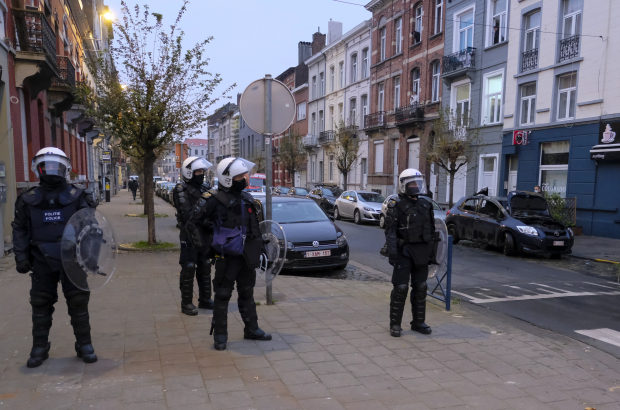- Daily & Weekly newsletters
- Buy & download The Bulletin
- Comment on our articles
Health crisis creating 'fertile ground' for radicalisation, warn experts
Rudi Vervoort, the minister-president of the Brussels-Capital Region, warned parliament on Tuesday that "the corona crisis is creating fertile ground for polarisation" - echoing concerns from experts who fear an increase in radicalisation during the current pandemic.
"In recent months, certain groups have developed a radical discourse that, through the spread of fake news, calls into question the credibility of the authorities," Vervoort told the home affairs committee.
The coronavirus crisis accentuates social fault lines and feelings of insecurity among citizens, Vervoort said, quoting from a report from experts involved in the new Global Safety and Prevention Plan (GVPP) for the period 2021-2024. The plan aims to develop strategies for dealing with five types of organised and 'subversive' crime, including radicalisation, in the region.
The five areas are: the production and smuggling of drugs, the smuggling and possession of firearms and explosives, violent radicalisation and terrorism, trafficking in human beings, and social and benefits fraud.
The working group responsible for the GVPP is made up of outreach workers and prevention services, police departments, Brussels Regional Security Agency for Prevention and Security (BPS), the Ocam (Coordination Body for the Threat Analysis), the capital’s municipalities, and the public prosecutor's office.
According to the initial report from the working group, the current crisis creates fertile ground for polarisation and extremist ideologies. While the majority of the population seems to support the measures against the spread of the virus, the experts say there is no denying that in recent months certain groups have developed “a radical counter-discourse that seeks to question the credibility of the authorities, especially through the spread of fake news.”
The future Global Safety and Prevention Plan will therefore extend and strengthen measures to combat 'fake news', Vervoort said.
In addition, in response to a call from the municipalities for enhanced support on radicalisation, the BPS and Ocad are working closely on a training programme for the coordinators of local integrated security cells of the Municipalities of Brussels. They detect radicalisation and extremism at the municipal level.
Another objective of the prevention and security plan for 2021-2024 is to offer more support to local authorities when it comes to tackling organised crime.
For this purpose, "a specific system for combating and preventing organised crime" will be developed at regional level, Vervoort said. "This will be done in full consultation with the judicial and administrative authorities."
The region will support municipalities in their fight against organised crime and public nuisance by coordinating, advising, monitoring and providing tools or expertise if necessary.
This regional 'system' is not yet in place but is one of the objectives of the new security plan. "There are already two preparatory initiatives," said Vervoort, referring to a 2018 local government guide to combating and preventing violent radicalisation, and the regional platform on radicalisation and polarisation.
Brussels, Vervoort said, will focus on setting up a regional network at centres of excellence that already exist elsewhere in the country, especially in Antwerp, Limburg and Namur.














